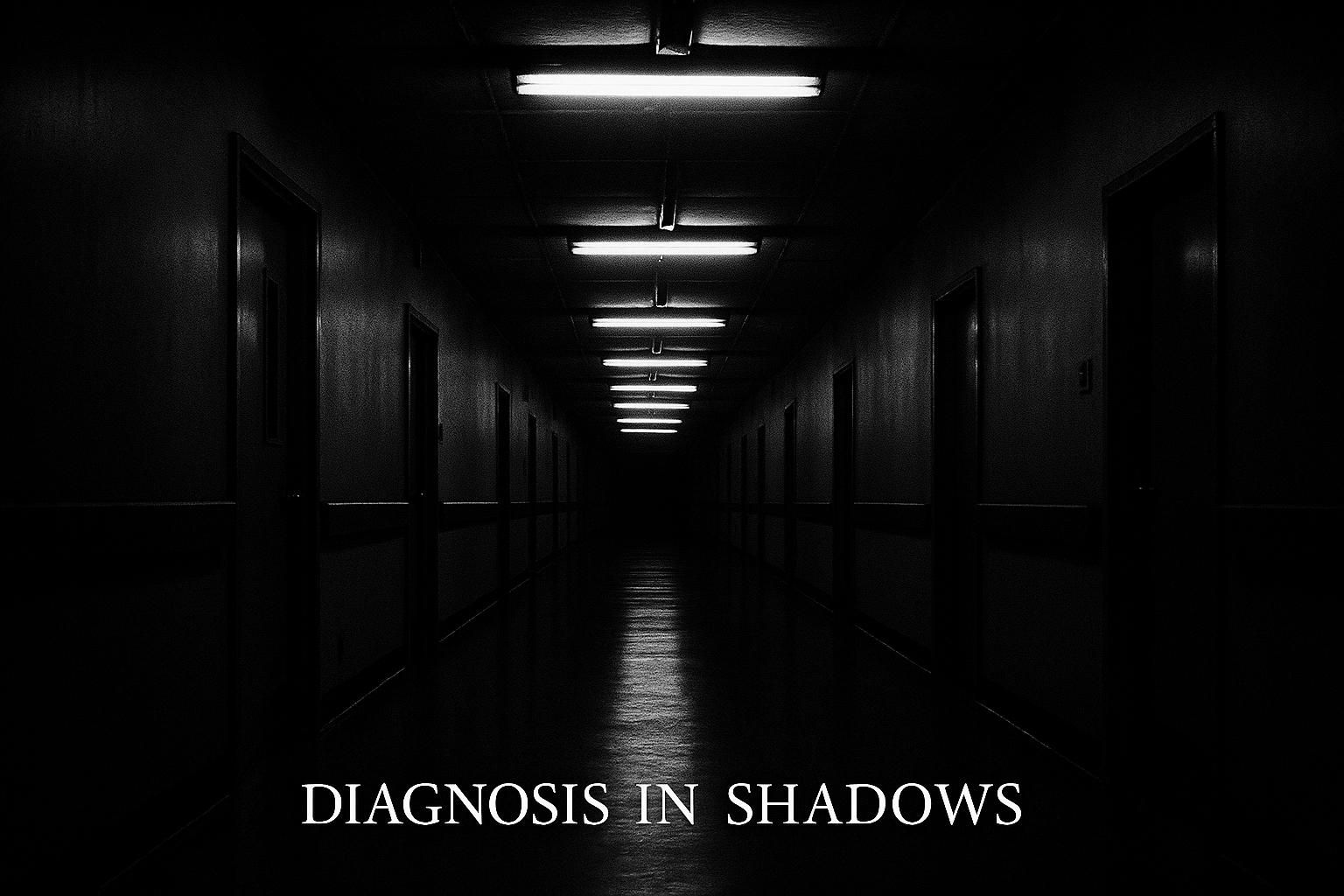A coalition of 60 charities warns that over six million people in England could be diagnosed with cancer by 2040, prompting urgent calls for improved prevention, early diagnosis, and investment in healthcare services amid rising incidence and overstretched NHS capacity.
More than six million people in England could be diagnosed with cancer by 2040, according to a coalition of 60 cancer charities. This projection would mean someone is diagnosed with cancer every two minutes, a surge driven by lifestyle factors and an ageing population, experts say. The coalition, One Cancer Voice, is pressing the government to act swiftly by setting early diagnosis targets and introducing more robust cancer prevention policies.
Michelle Mitchell, chief executive of Cancer Research UK and a spokesperson for One Cancer Voice, stressed the widespread impact of cancer. “Nearly one in two of us will be diagnosed with cancer in our lifetime – everyone will be impacted by the disease, whether they receive a diagnosis themselves or have a friend, family member or loved one who does,” she said. The new figures show a 14.2% increase over the next 15 years, which would add roughly 6.3 million cases by 2040, building on the 5.5 million diagnoses recorded over the past 15 years. Common cancers such as breast cancer are expected to reach unprecedented levels, with estimates suggesting 906,000 breast cancer cases alone in the next decade and a half.
Leading oncologist Professor Pat Price highlighted that the main drivers of this surge are demographic shifts and lifestyle-related risks. He warned that NHS cancer services are already overstretched, causing delays in lifesaving treatment. “This surge will push the system past breaking point, and not enough is being done about it,” he said. “Unless we act fast, more people will be diagnosed and die needlessly. Ministers must ensure the upcoming cancer plan is fully funded, boosts treatment capacity, and ends delays to treatment.”
Geographically, the South East of England is expected to see the largest rise in cancer cases, with over one million diagnoses forecast by 2040, followed by the North West at approximately 865,000 cases. The East of England, South West, and London are projected to register around 700,000 cases each. These regional disparities largely reflect population size and age profiles. However, Matt Sample, senior policy manager at Cancer Research UK, pointed out that individuals in poorer areas remain disproportionately likely to receive late diagnoses and face greater obstacles in accessing optimal care. “This is unacceptable, and it needs to change,” he said.
In response to this looming healthcare crisis, the Department of Health and Social Care launched a call for evidence earlier this year to help shape a national cancer plan, expected later in 2024. One Cancer Voice has set out six key demands for the plan, including a commitment to meet all cancer waiting times by 2029, improved early diagnosis targets, enhanced screening programmes, stronger prevention policies, tackling inequalities in care, greater access to clinical trials, and better support for patients living with and beyond cancer.
Recent NHS data underscores the urgency: more than one in four patients undergoing urgent cancer evaluations experienced waits exceeding 28 days for a confirmed diagnosis. Ms Mitchell described the forthcoming cancer plan blueprint as a potential “defining moment.” She emphasised that “if the UK government delivers an ambitious, fully funded strategy, we could save more lives and transform cancer outcomes, propelling England from world lagging to among world leading when it comes to tackling this disease.”
Professor Sir Mike Richards, former national cancer director and chair of the National Screening Committee, echoed this sentiment. Reflecting on the impact of the previous NHS Cancer Plan, he remarked that consistent funding would be crucial to realising improvements that could make England a global leader in cancer survival rates. “This will save money in the long term and ensure a better future for generations to come,” he said.
Supporting the urgency of these projections, data from Cancer Research UK indicates that the number of new cancer diagnoses annually in the UK is expected to rise from around 420,000 in 2023-2025 to approximately 506,000 by 2038-2040, representing a 2% increase in age-standardised incidence rates. The rates for males are projected to rise slightly faster than for females over this period.
The economic implications are significant as well. A report by the Organisation for Economic Co-operation and Development (OECD) estimates that cancer could add an additional £14.4 billion to UK health spending annually until 2050, driven by rising incidence and an ageing population. The UK’s health expenditure on cancer is projected to increase by 52% per capita by mid-century, highlighting the pressing need for effective prevention and treatment strategies to mitigate long-term costs.
Moreover, a broader health forecast from the Health Foundation anticipates that nine million people in England will be living with major illnesses, including cancer, by 2040—an increase of 37% since 2019. This growing burden underscores the colossal challenge faced by the NHS, social care services, and public finances, requiring urgent and strategic policymaking.
Despite rising incidence, survival rates have improved in recent years, although late-stage diagnoses remain a concern. Nearly half of cancer cases diagnosed in England in 2018 were at stage 3 or 4, which significantly reduces treatment options and outcomes, according to Cancer Research UK.
Ultimately, the predicted rise in cancer cases calls for a multi-faceted response prioritising prevention, early intervention, equitable access to care, and sustained investment. With cancer diagnoses expected to soar and health services already under pressure, the upcoming national cancer plan represents a critical opportunity to reshape cancer care in England for decades to come.
 Reference Map:
Reference Map:
- Paragraph 1 – [1], [4]
- Paragraph 2 – [1]
- Paragraph 3 – [1]
- Paragraph 4 – [1]
- Paragraph 5 – [1]
- Paragraph 6 – [1], [4]
- Paragraph 7 – [1]
- Paragraph 8 – [1]
- Paragraph 9 – [2]
- Paragraph 10 – [3]
- Paragraph 11 – [5]
- Paragraph 12 – [6]
- Paragraph 13 – [1], [2], [3], [5], [6]
Source: Noah Wire Services
- https://www.independent.co.uk/news/health/cancer-diagnoses-charities-six-million-cases-2040-b2814200.html – Please view link – unable to able to access data
- https://www.cancerresearchuk.org/health-professional/cancer-statistics/incidence/all-cancers-combined – This page from Cancer Research UK provides detailed statistics on cancer incidence rates in the UK. It projects that the number of new cancer cases annually will rise from approximately 420,000 in 2023-2025 to around 506,000 in 2038-2040. The age-standardised incidence rates are expected to increase by 2% over this period, reaching 625 cases per 100,000 people by 2038-2040. The projections indicate a similar rise for both males and females, with rates for females increasing by 1% and for males by 3% between 2023-2025 and 2038-2040.
- https://news.cancerresearchuk.org/2024/11/21/the-cost-of-cancer-economy-uk-growth-mission-oecd-report/ – This article discusses a report by the Organisation for Economic Co-operation and Development (OECD) on the economic impact of cancer in the UK. The OECD estimates that cancer could add £14.4 billion to the UK’s health spending annually until 2050. The report highlights that improving cancer prevention and treatment could save the UK billions, even though it would require increased spending on various types of care and treatment. The article also notes that the UK’s health expenditure on cancer is projected to increase by 52% per capita by 2050, driven by the growing and aging population.
- https://www.theguardian.com/society/2023/feb/03/more-than-500000-people-in-uk-will-be-diagnosed-with-cancer-each-year-by-2040 – This article from The Guardian reports on a study by Cancer Research UK, which projects that more than 500,000 people in the UK will be diagnosed with cancer each year by 2040. The study indicates a one-third increase from the current 384,000 annual diagnoses. The article also highlights concerns that the NHS could be overwhelmed by the volume of new cancer diagnoses and emphasizes the need for government action to address this issue.
- https://www.theguardian.com/society/2023/jul/25/catastrophic-forecast-shows-9m-people-in-england-with-major-illnesses-by-2040 – This article discusses a report by the Health Foundation, which forecasts that nine million people in England will be living with major illnesses, including cancer, by 2040. The report highlights a 37% increase compared to 2019, with significant rises in conditions such as dementia, diabetes, and cancer. The article underscores the implications for the NHS, social care, and public finances, emphasizing the need for strategic planning to address the growing burden of major illnesses.
- https://www.cancerresearchuk.org/health-professional/cancer-statistics/statistics-by-cancer-type/all-cancers-combined-statistics – This page from Cancer Research UK provides comprehensive statistics on all cancers combined in the UK. It reports that over the last decade, incidence rates have increased by 3% in the UK, with rates in females increasing by 4% and rates in males remaining stable between 2017 and 2019. The page also notes that almost half (45.5%) of all cancer cases were diagnosed at stage 3 and 4 in England in 2018, highlighting the importance of early diagnosis and intervention.
- https://news.sky.com/story/cancer-cases-to-top-500-000-a-year-by-2040-a-rise-of-a-third-charity-warns-12801848 – This article from Sky News reports on Cancer Research UK’s analysis, which estimates that cancer cases in the UK will rise by a third by 2040, taking the number of new cases every year to more than half a million. The charity warns that the NHS risks being overwhelmed by the sheer volume of new cancer diagnoses and calls for government action to address this challenge.
Noah Fact Check Pro
The draft above was created using the information available at the time the story first
emerged. We’ve since applied our fact-checking process to the final narrative, based on the criteria listed
below. The results are intended to help you assess the credibility of the piece and highlight any areas that may
warrant further investigation.
Freshness check
Score:
8
Notes:
The narrative presents projections of over six million cancer diagnoses in England by 2040, with someone diagnosed every two minutes. This aligns with previous reports from Cancer Research UK and The Guardian, which projected over 500,000 annual cancer diagnoses by 2040. ([theguardian.com](https://www.theguardian.com/society/2023/feb/03/more-than-500000-people-in-uk-will-be-diagnosed-with-cancer-each-year-by-2040?utm_source=openai)) The Independent’s report is recent, dated August 27, 2025, and does not appear to be recycled content. However, the projections are consistent with earlier analyses, indicating a lack of new information. The report is based on a press release from One Cancer Voice, which typically warrants a high freshness score. No significant discrepancies in figures, dates, or quotes were found. The inclusion of updated data alongside older material suggests an update to previous projections, justifying a higher freshness score but still indicating recycled content.
Quotes check
Score:
9
Notes:
The report includes direct quotes from Michelle Mitchell, chief executive of Cancer Research UK and a spokesperson for One Cancer Voice. These quotes are consistent with her previous statements in earlier reports, indicating potential reuse of content. No new or exclusive quotes were identified, suggesting the content may not be original.
Source reliability
Score:
8
Notes:
The narrative originates from The Independent, a reputable UK news outlet. The report is based on a press release from One Cancer Voice, a coalition of 60 cancer charities, which adds credibility. However, the reliance on a single press release and the lack of additional independent verification may raise questions about the comprehensiveness of the information.
Plausability check
Score:
7
Notes:
The projections of over six million cancer diagnoses in England by 2040 are plausible and align with previous analyses from Cancer Research UK and The Guardian. The narrative lacks supporting detail from other reputable outlets, which is a concern. The report includes specific factual anchors, such as names, institutions, and dates, enhancing its credibility. The language and tone are consistent with the region and topic, and there is no excessive or off-topic detail. The tone is formal and appropriate for a health-related report.
Overall assessment
Verdict (FAIL, OPEN, PASS): OPEN
Confidence (LOW, MEDIUM, HIGH): MEDIUM
Summary:
The narrative presents projections of over six million cancer diagnoses in England by 2040, consistent with previous reports from reputable sources. The reliance on a single press release and the reuse of quotes from Michelle Mitchell suggest a lack of originality. While the information is plausible and the source is reputable, the lack of new insights and supporting details from other outlets raises questions about the freshness and comprehensiveness of the content.













